The 6 best eye creams for dark circles, according to our beauty experts
Our experts review the best eye creams for dark circles to help perk up the delicate under-eye area
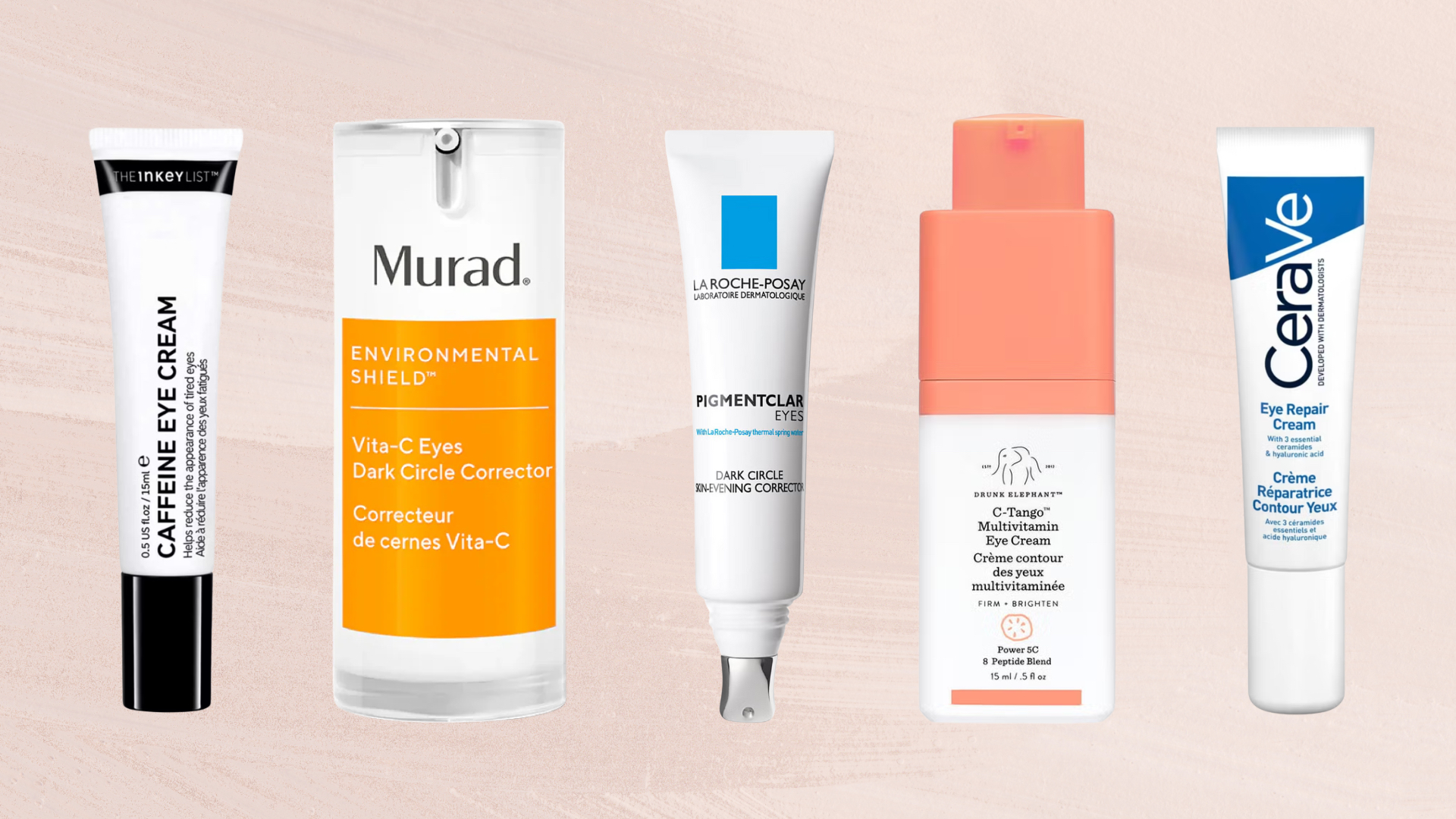
Though a topical product can only achieve so much, the best eye creams for dark circles can help to reduce their visibility. These concentrated formulas will be lightweight yet potent enough to treat this delicate area of skin.
You're probably aware that bit of research is required when narrowing down the best eye cream to suit your needs. These gentle-yet-powerful formulas can tackle anything from a lack of hydration to the look of fine lines and wrinkles.
Using a good eye cream can help, but it's useful to pinpoint any particular lifestyle factors that may be contributing to your own dark circles – such as lack of sleep, diet, or not drinking enough water. As you’ve probably guessed by now, though, as much as we’d like it to, an eye cream won’t provide a silver bullet. What we apply topically is just a piece of the puzzle, but a helpful one nevertheless – here are our beauty experts top tried-and-tested eye creams for dark circles...
The best eye cream for dark circles, reviewed by our beauty team
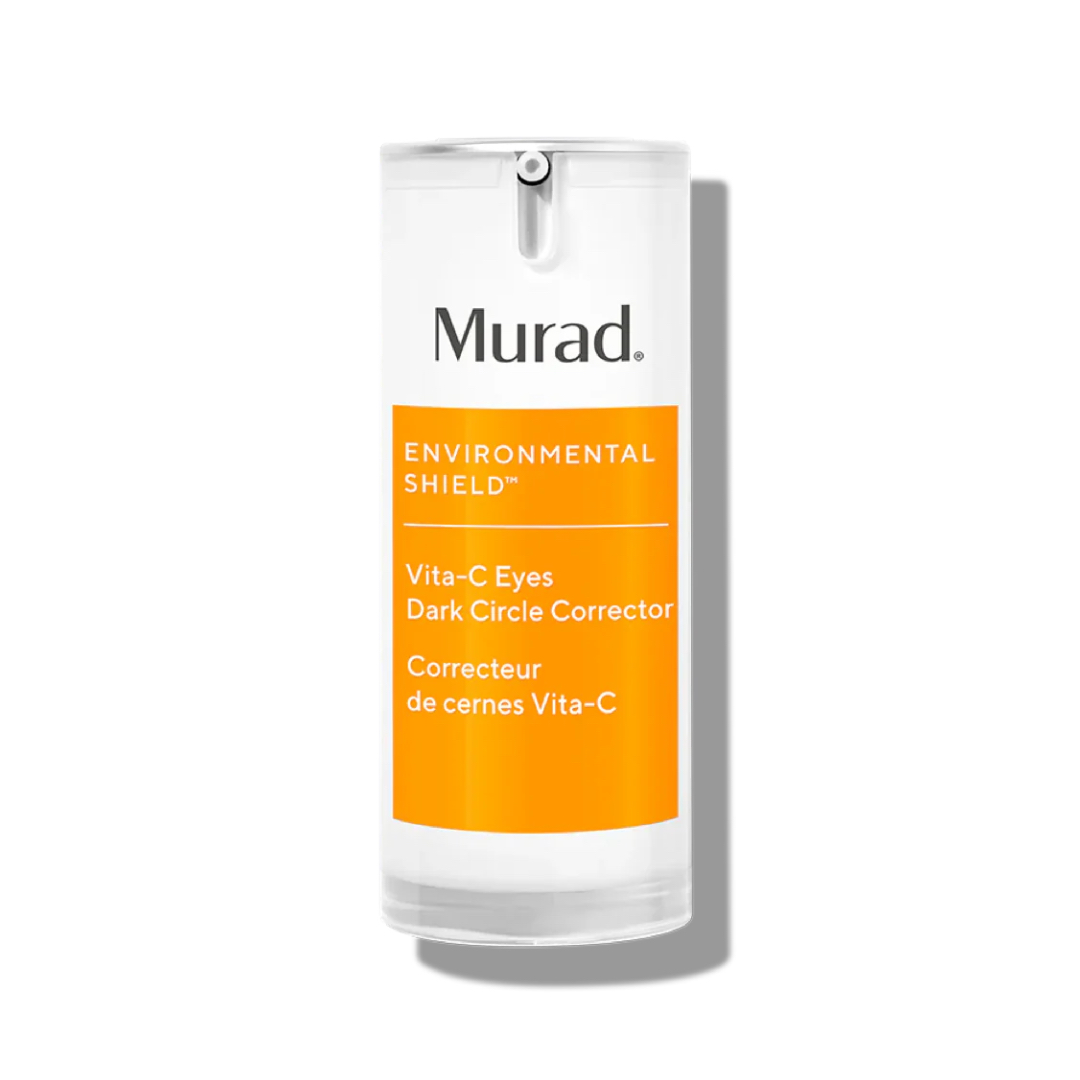
RRP: £69 for 15ml | Key ingredients: Ascorbic acid, tetrahexyldecyl ascorbate, glutathione, niacinamide, red algae, giant kelp extract
It’s this eye cream’s brightening and skin-firming vitamin C complex that sets it apart for us: pure L-ascorbic acid, a vitamin C derivative called tetrahexyldecyl ascorbate (or THD if you want less of a tongue-twister) and glutathione. This potent blend is why it's our overall best pick.
In combination with de-puffing red algae, giant kelp extract and subtle light-reflecting micro minerals, we found the formula to be an effective team of fatigue fighters. We also liked that it has a lovely, creamy consistency that absorbs well into skin.
Reasons to buy: Doctor-founded brand, potent formula
Reasons to avoid: You're working with a smaller budget
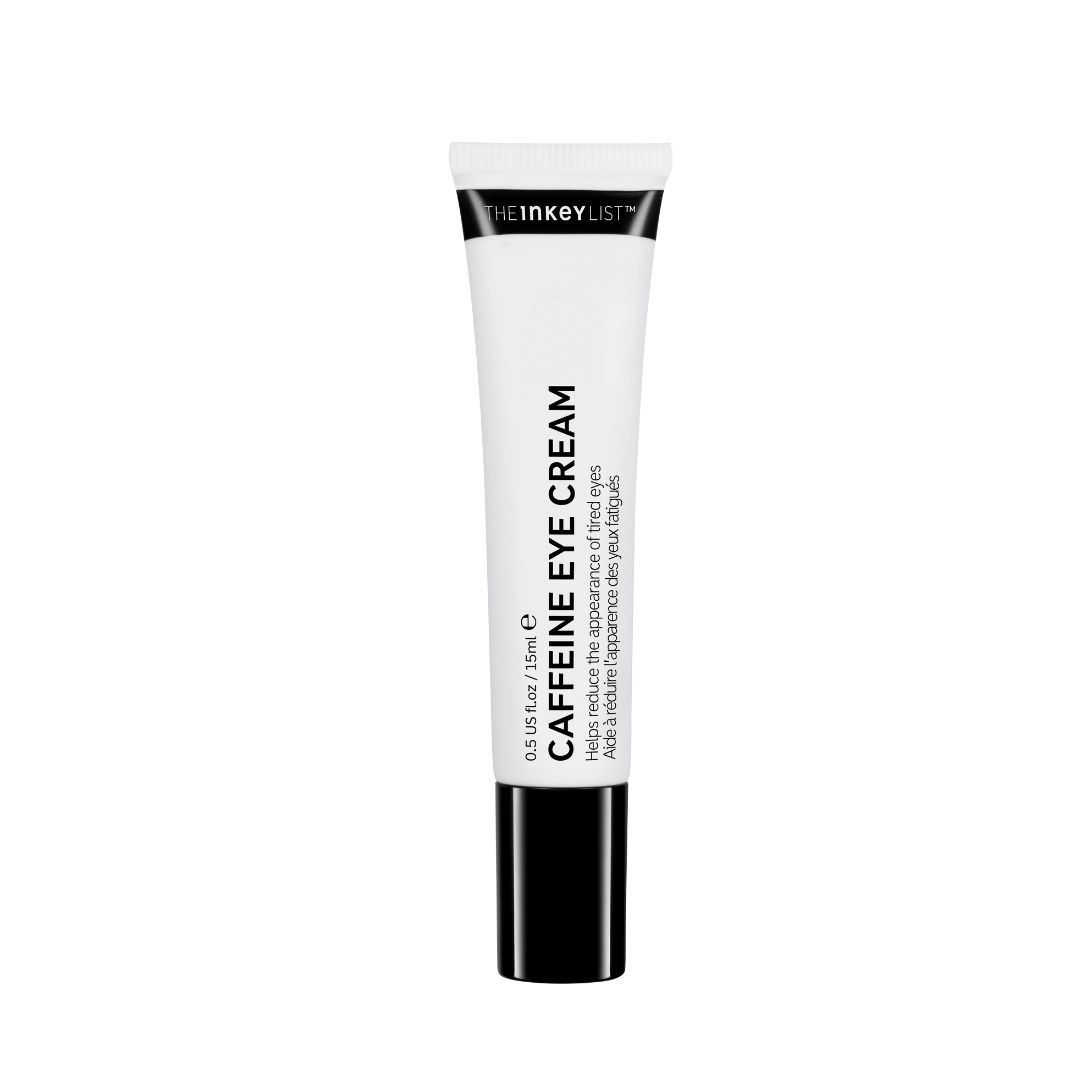
RRP: £12 for 15ml | Key ingredients: Caffeine, Matrixyl 3000
If your dark circles are more blue-toned and often accompanied by a case of puffiness, this pleasantly affordable pick could be for you. We love the INKEY List for its budget-friendly buys, and this eye cream is no question. Caffeine constricts the blood vessels underneath the skin, making the colour around the eye less visible, and also eases congestion, too (making it ideal for use first thing in the morning). It’s more than a one-trick pony though; this cream also contains the peptide Matrixyl 3000, which encourages collagen production with the aim of helping to reduce fine lines.
Reasons to buy: You're working with a limited budget and want something for tired eyes
Reasons to avoid: You want a more intense active formula with ingredients like retinol or potent vitamin C
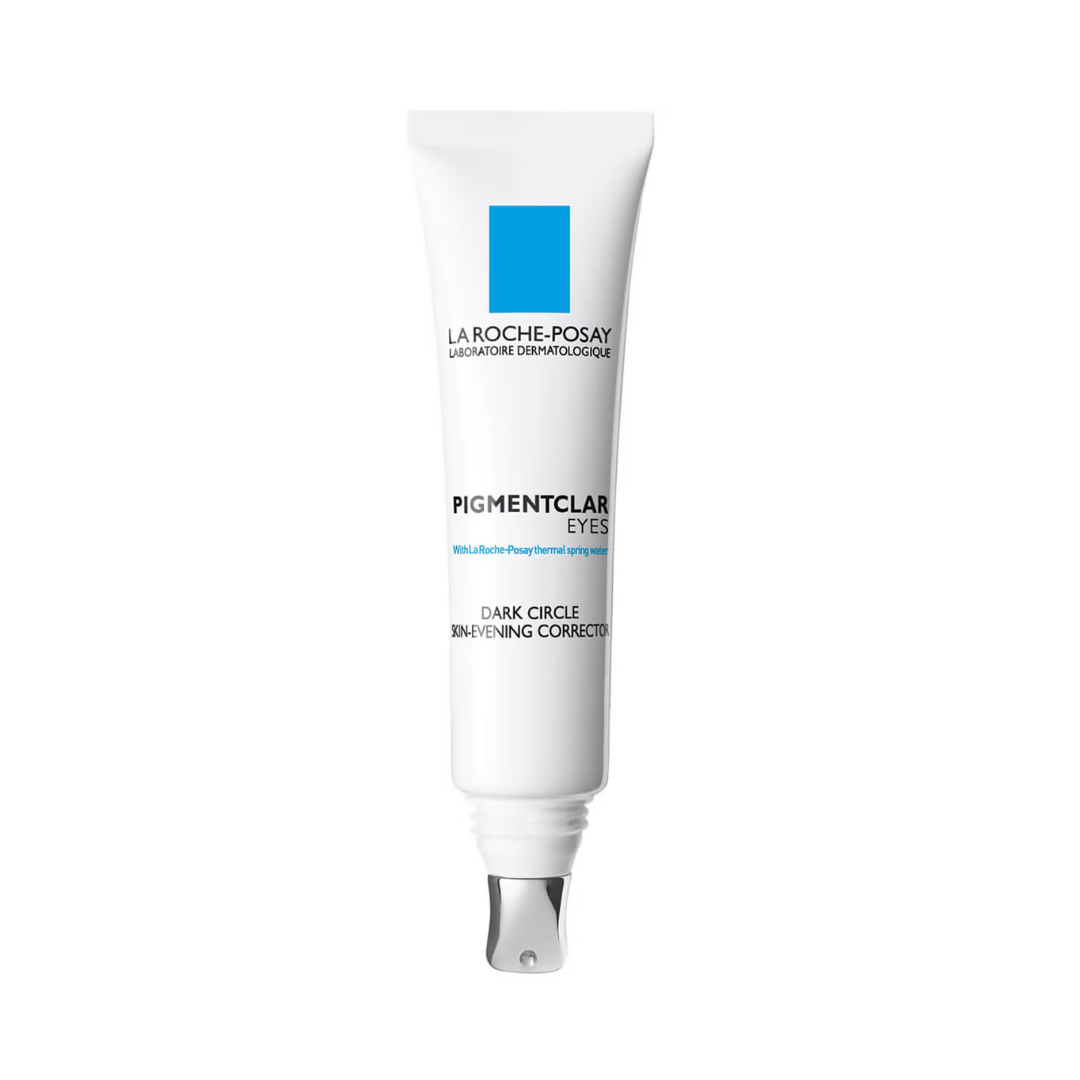
RRP: £31 for 15ml | Key ingredients: Niacinamide, caffeine, gingko biloba extract, ferulic acid, PhE-Resorcinol
When it comes to brands that provide impressive results at a mid-range price point, you’d be hard-pressed to find one that does it better than La Roche-Posay – one of our personal favourite brands. This eye cream is a great example of that.
With a formula containing decongesting caffeine, as well as ingredients that help even out skin tone, it’s a good fit for softening down both blue- and brown-toned dark circles. Additionally, we liked that its formula also contains light-reflecting pigments, while its tube comes with a cooling applicator to help gently massage away puffiness – adding to the overall user experience.
Reasons to buy: Dermatologist-recommended brand
Reasons to avoid: You want a more bargain-friendly buy
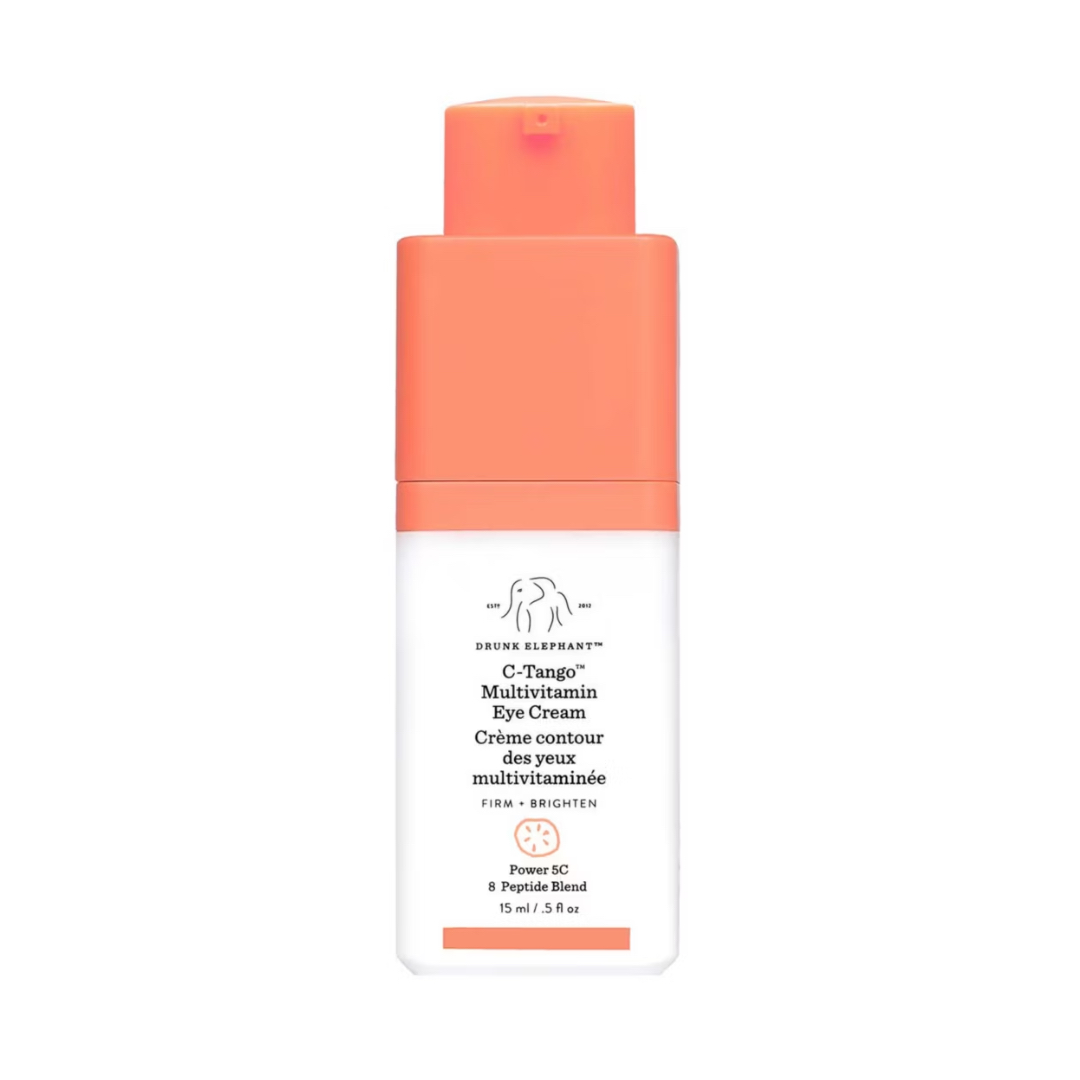
RRP: £57 for 15ml | Key ingredients: Peptides, ceramides, vitamin C, cucumber extract
We love Drunk Elephant and this powerful potion didn't disappoint us. Containing eight peptides, five forms of vitamin C, ceramides and cucumber extract, we liked that this restorative eye cream helps firm, even out skin tone and soothe in one fell swoop.
A great all-rounder that meets the unique needs of more mature delicate under-eye skin, in particular, glowing reviews online also gush about its fast-absorbing hydrating texture and eye-brightening effects.
Reasons to buy: You want a powerful cocktail of skincare ingredients in your eye cream
Reasons to avoid: You're on a small budget; this is pricey, even by eye cream standards
![La Roche-Posay Redermic [R] Retinol Eye Cream](https://cdn.mos.cms.futurecdn.net/kJFGtGwfz3dmRXhSDcCB5i.jpg)
RRP: £31.50 for 15ml | Key ingredients: Retinol, caffeine, sodium hyaluronate (hyaluronic acid)
Retinol (in fact, retinoids in general) has become the favoured ingredient among experts and beauty insiders over the past few years, and its benefits apply as much to the eye area as it does the rest of the face. This gentle-yet-effective nightly eye cream contains 0.1% of the stuff to help eyes look less sunken (by stimulating collagen production) and to even out skin tone (by increasing cell turnover and exfoliation).
We were also impressed by the 0.2% dose of caffeine also acts as a helpful vasoconstrictor and reduces congestion, too. As with all retinol products, we can tell you from experience that a slow-and-steady approach is best, so start by applying it two nights a week and see how it works out.
Reasons to buy: You want a retinol eye cream to target fine lines and wrinkles
Reasons to avoid: You'd prefer something gentle
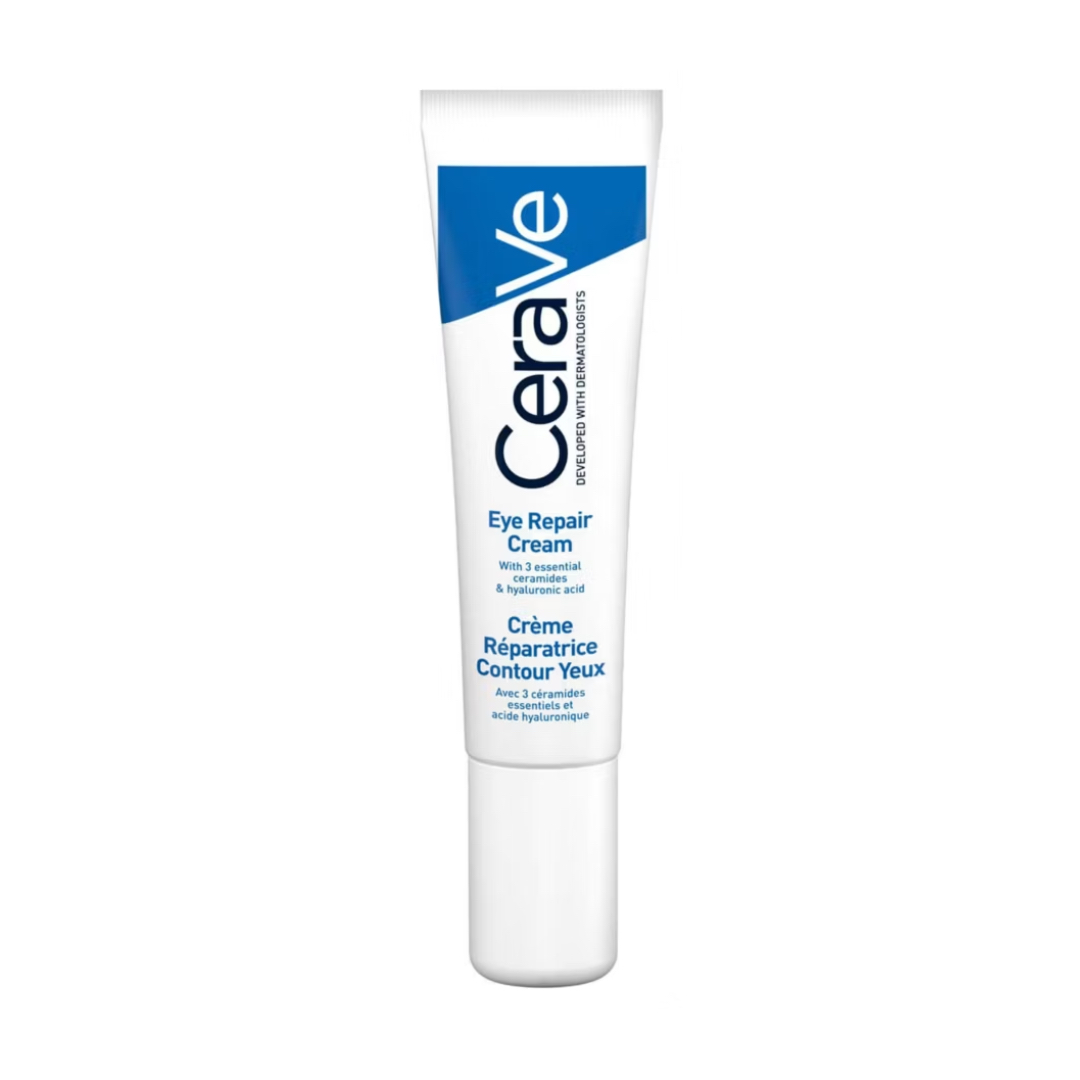
RRP: £14.50 for 14ml | Key ingredients: Niacinamide, ceramides, hyaluronic acid
A suits-all option enriched with ceramides to support the skin’s natural barrier, this replenishing eye cream’s cocktail of calming ingredients gives it far-reaching appeal, as well as winning over our beauty team. It caters to everyone, from the least sensitive of skins to the most, and has been given the seal of approval from the National Eczema Association.
Ceramides, which support and maintain skin’s natural barrier, lie at the core of this formula, while hydrating hyaluronic acid plumps, glycerin moisturises and all-rounder niacinamide brightens and soothes. We love its creamy consistency and how gentle it feels on the under-eye area.
Reasons to buy: Simple, creamy formula with barrier-supporting ingredients
Reasons to avoid: You want something with a thinner, silkier consistency
How we tested the best eye creams for
As expert beauty journalists, our testers chose eye creams that they knew from experience targeted the appearance of dark circles for a range of different skin types and concerns. Each eye cream that made the final list was assessed on the following factors.
- Price and value for money
- Packaging
- Ease of application
- Texture
- How the area felt immediately after application and through the day
- Key ingredients, including actives
How to choose the best eye cream for dark circles for you
Managing expectations is key, as dark circles are often caused by a loss of volume and genes, which can be difficult (and in the case of genes, impossible) to address. No eye cream can get rid of them entirely, however, they may reduce their severity. Look for ingredients that brighten and even skin tone, such as vitamin C and retinol, hydrate and temporarily plump, like hyaluronic acid, and decongest and constrict blood vessels (caffeine), support skin barrier function (niacinamide and ceramides), and boost collagen production (peptides, vitamin C and retinol).
Do you really need a separate eye cream, though? Some argue that you can just take the skincare that you’re using on the rest of your face up to the eye area, provided that the instructions don't tell you not to do this. If it doesn’t cause any stinging or sensitivity, that might work well for you. But due to how delicate the skin around the eye area is – up to four times thinner than the skin around the rest of the body – and its specific concerns, a specially formulated, thin-textured eye cream could be a more preferable option. This is especially true if you’re prone to puffy eyes or milia, which can be exacerbated by heavy and rich-textured products.
Experts also recommend that you combine your chosen product with lifestyle tweaks, like trying to up your hydration and good quality sleep, as well as wearing sunglasses and a broad spectrum sunscreen of at least SPF 30, or 50+.
What causes dark under eye circles?
Factors such as lack of sleep, smoking, dehydration, high-salt diets, caffeine, and alcohol can all contribute to this problem, especially when learning how to get rid of eye bags or puffy eyes. Allergies can be a factor too, as they can lead to congestion, sluggish circulation, and veins becoming more dilated and visible underneath thin under-eye skin. This is what often gives some dark circles their distinctive tone.
If the circles under your eyes are more brown in colour, though, they could be the result of pigmentation, a common condition where the skin becomes darker due to excess or uneven melanin distribution. Causes include sun damage, hormones and ageing, as well as genetics.
As if that wasn’t enough in the way of potential contributing factors, as we age, skin naturally loses volume around the eye area due to dwindling fat and collagen stores. This results in eyes appearing more sunken, with veins and dark circles becoming more pronounced. So while some lifestyle factors could be at play, there are biological causes that could be behind your dark circles, too. This is why it's important to manage expectations of what a topical skincare product can achieve – it may make a difference, but is unlikely to completely "fix" them.
Our expert panel

Eunice is a beauty and lifestyle editor who previously held the position of US Beauty Channel Editor at woman&home. With more than 15 years of experience working on magazines and covering beauty, she has tried dozens if not hundreds of products over the years, including eye creams, meaning she knows what makes a good formula for targeting dark circles.

Ayesha Muttucumaru is a freelance beauty journalist who has written for titles including Women's Health, Red and Get The Gloss, as well as for woman&home. With more than 13 years of experience in the industry, she has tested many eye creams over the years, including formulas that claim to target dark circles – meaning she knows both what makes a good eye cream for dark circles and what can realistically be achieved with a topical formula.
Don't forget to check our woman&home vouchers site before you shop for the latest offers and discounts from your favourite brands – think Feel Unique, Cult Beauty and Boots
Sign up to our free daily email for the latest royal and entertainment news, interesting opinion, expert advice on styling and beauty trends, and no-nonsense guides to the health and wellness questions you want answered.
Ayesha is a freelance beauty writer and when she's not contributing to woman&home she can be found writing about all things cosmetics, hair and self-care in her role as Senior Features Writer for Get The Gloss. She also writes a monthly hair column called ‘Who, What, Hair’ (which combines her love of puns and buns perfectly), in addition to a column exploring the new and exciting options now available for women of darker skin tones called ‘Not Fair’. She’s also been shortlisted for a number of awards including Best Online Beauty Journalist at the Johnson and Johnson Journalism Awards.

